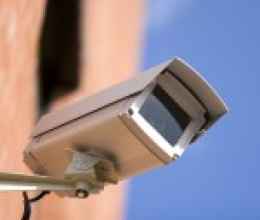This post discusses HB 346, and security/privacy risks regarding enhanced IDs.
In 2005, the federal government passed the Real ID Act, in the hopes of creating a national identification card that all people would carry. In fact, without one of these identification cards, you would hypothetically be unable to fly commercially, or enter a federal court. However, 15 states refused to comply with Real ID, rendering it more or less defunct. Now, Ohio is attempting to revive this act on a state level, with House Bill 346. On May 20, House Bill 346 was approved by the House Committee on Transportation, Public Safety, and Homeland Security; it is aiming to distribute enhanced identification cards, similar to the Real IDs the federal government hoped to create.
Several states have rejected Real ID, and Ohio should do the same with this proposed enhanced ID. The implications for our privacy rights are seemingly limitless.
These new licenses would contain a radio frequency identification chip (RFID), which would contain vital information about the owner of the license, theoretically making it easier for them to travel, and cross the border to Canada or Mexico.
RFID chips can be hacked, making it easier for criminals to take advantage of people, and for the government to unnecessarily access too much private information. Anyone with sufficient computer skills could breach the security put in place, and have access to citizens’ identification and information. Is a somewhat faster border crossing process worth the security risk?
Anyone who carries these IDs could potentially have their identity and their personal information compromised. Not only are criminals a source of concern, but the potential governmental abuse of this technology should give everyone cause for concern. These IDs could be used to track the location of anyone carrying an ID, which could lead to location tracking and dangerous surveillance of individuals who have done no wrong. Customs officials have the ability to upload all of the information off of these cards once you are within thirty feet of a border crossing location, meaning that you no longer have control over who has your information, and where that information goes. Essentially, you are entrusting the Department of Public Safety with all of your private information, and it may be shared with others. These IDs hold the potential to make privacy a thing of the past.
Although Representative Damschroder, who is sponsoring this bill, claims that this should be a success, and that those who believe it is an infringement on their privacy can simply not get an ID, should those who get one have to live in a state of constant worry? Privacy is a civil liberty every person deserves, and the government should not provide any options that unnecessarily encroach upon that liberty, and put people in harm’s way.






